Have you noticed that your Dachshund is peeing a bit when they get nervous or excited?
Does your pup leave a pile of piddle after they greet you, another human or a fellow canine counterpart?
You might be witnessing submissive urination.
Submissive urination is a fairly common behavior in dogs, but it can be frustrating and messy for everyone involved.
This article will help explain what exactly submissive urination is, and why it occurs. Then we’ll discuss how you can decrease, correct and prevent it altogether.
What is Submissive Urination in Dogs?
Submissive urination occurs when a dog uncontrollably releases their bladder to display that they are not a threat to others.
Submissive urination is a common form of canine communication, and urination will often occur when a dog is feeling exceptionally excited or intimidated.
Submissive urination can produce small dribbles of urine or large puddles and it looks different for every Dachshund.
Some will do it when only interacting with other dogs, while others urinate when greeting new humans.
What Causes Submissive Urination?
Submissive urination is frequently triggered by exciting or unfamiliar events such as playing with new dogs, greeting people or even getting ready to go on a nightly walk.
Punishment and scolding can also cause submissive urination.
When a Dachshund submissively urinates, you will probably notice associated body language such as cowering, tucking the tail, squinting eyes or rolling over onto their back.
Puppies are most likely to submissively urinate, but adult Dachshunds can struggle with it as well.
Lack of confidence in adult dogs is often a factor when it comes to submissive urination, but any dog can ultimately have this issue.
Submissive urination often happens due to new or unfamiliar situations.
It’s important to note that submissive urination can be indicative of a more serious health concern.
The first cause for concern is if it’s a new behavior. If it’s something your Dachshund suddenly started doing, there could be an underlying medical cause.
If your Dachshund is peeing a lot and frequently, or it’s followed by defecation, a visit to a veterinarian is definitely in order.
You will want to rule out medical issues before moving forward with training and other behavioral solutions.
Other factors that can cause your Dachshund to inappropriately urinate can include GI upset, change in diet, urinary tract or bladder infection, incontinence from a recent spay or neuter, and abnormalities of the genitalia.
Will My Dachshund Grow Out of Submissive Urination?
Some Dachshunds will grow out of active submissive urination, while others need to be trained in order to stop.
There are different ways to train your Dachshund to stop submissively urinating, depending on the circumstances under which they do it.
Fear-based training can worsen submissive urination, so using positive reinforcement with treats and toys is going to be the best option. If your dog is afraid of you or certain training “tools,” the behavior won’t be corrected.
What can you do to decrease or prevent submissive urination?
Use these tips to decrease and possibly prevent submissive urination:
- If submissive urination occurs when your Dachshund greets you, begin training by greeting them outside rather than indoors.
- When your Dachshund is in the process of running up to you, gently toss some treats or a favorite toy in their direction.
- Do not get overly excited when you come home (or go on walks – whatever scenario is causing your Dachshund to urinate). Allow your Dachshund to calm down before you proceed with a walk, greet your pup, put on their leash, etc.
- Have your Dachshund perform a behavior, such as sit or lay down, before you proceed with your next activity.
- When petting your dog, do so under their chin or chest, rather than reaching for the top of their head or ears.
Understanding why your dog is urinating will help you fix it.
- Keep play sessions focused on toys, rather than your hands or body.
- Socialize your Dachshund as soon as you can. Confident dogs are much less likely to submissively urinate.
- Sit on the floor to put on a harness or pet your dog. Getting on their level is much less overwhelming.
- Submissive urination can potentially be a side effect of incomplete house training, so make sure your Dachshund is fully potty trained before you begin to “correct” it.
- If your Dachshund is under 12 weeks of age, remember that they may not have full control or their bladder and bowel movements yet. Puppies cannot “hold it” like adult dogs can.
It’s also crucial that you never physically punish or scold your dog, especially when they struggle with submissive urination.
Getting angry in response to your pup inappropriately urinating will only make problems worse.
Plus, your Dachshund will begin to fear and distrust you, in which case it will derail any positive progress you’ve made.
Final Thoughts
Submissive urination in Dachshunds is common, but can be easily prevented and corrected by way of training and socialization.
Remember that a confident dog is less likely to submissively urinate.
Be sure to rule out any medical concerns with the help of a veterinarian, and make sure your puppy is older than 12 weeks before you begin attempting to diagnose submissive urination.
Training won’t help if your dog has a UTI, bladder infection, or other medical condition.
In the meantime, slow down your greetings, socialize your Dachshund with others, and use plenty of treats.
Keeping your furry friend from submissive urination takes time, but with patience, you are sure to be successful.

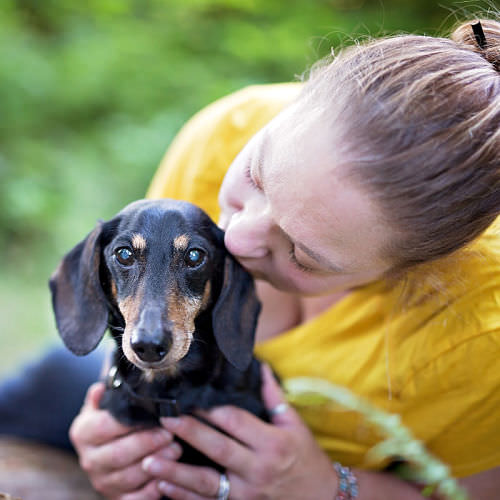
About the Author: Through her 17 years of owning and caring for Dachshunds, and almost 10 years researching and writing about them, JW has become a respected expert in the Dachshund community. Read more about her here.

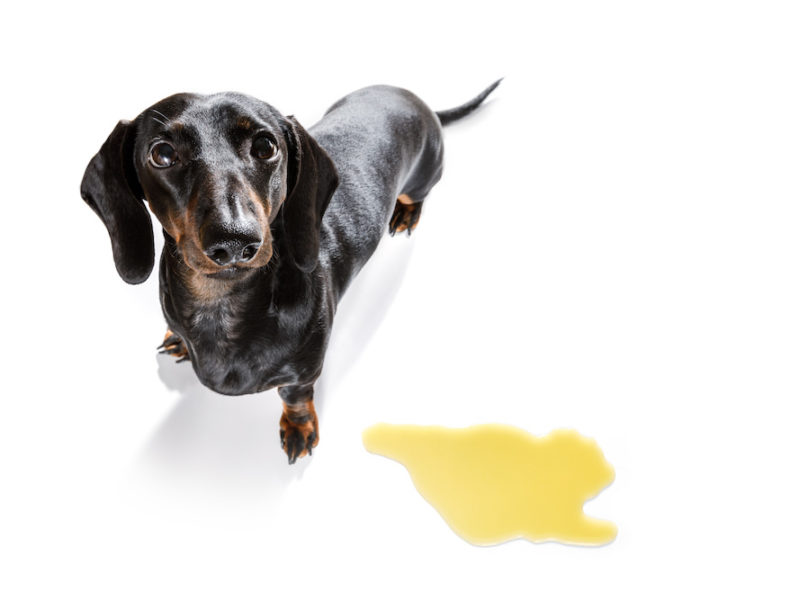
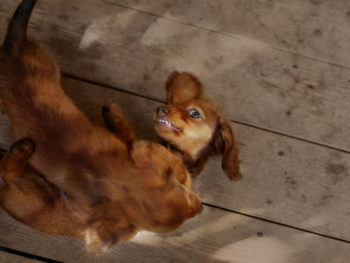
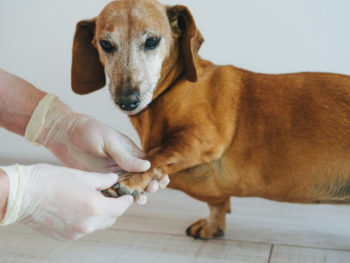

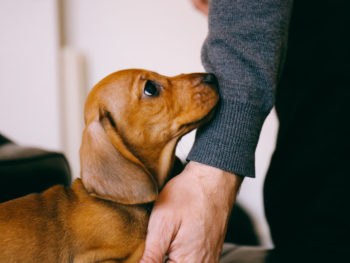




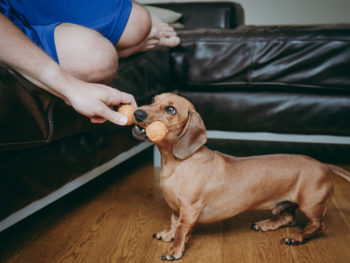

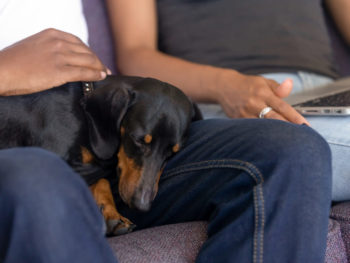

 When is a Dachshund Considered a Senior?
When is a Dachshund Considered a Senior?


